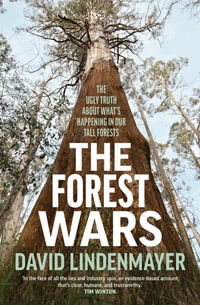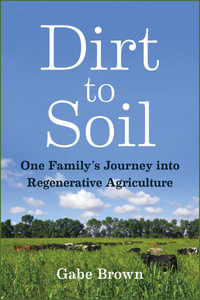Gene Logsdon has become something of a rabble-rouser in progressive farm circles, stirring up debates and controversies with his popular New Farm Magazine column, The Contrary Farmer. One of Logsdon's principle contrarieties is the opinion that--popular images of the vanishing American farmer, notwithstanding--greater numbers of people in the U.S. will soon be growing and raising a greater share of their own food than at any time since the last century. Instead of vanishing, more and more farmers will be cottage farming, part-time.
This detailed and personal account of how Logsdon's family uses the art and science of agriculture to achieve a reasonably happy and ecologically sane way of life in an example for all who seek a sustainable lifestyle. In The Contrary Farmer, Logsdon offers the tried-and-true, practical advice of a manual for the cottage farmer, as well as the subtler delights of a meditation in praise of work and pleasure. The Contrary Farmer will give its readers tools and tenets, but also hilarious commentaries and beautiful evocations of the Ohio countryside that Logsdon knows as his place in the universe.
Industry Reviews
Publishers Weekly-
"Cutting down a large tree should be an act charged with ritual." Why? Farming columnist Logsdon ( Organic Orcharding ) points to the tree's "wonderful accomplishment" and to its "feat of survival" as models for ourselves. Then he goes on to discuss ways of felling trees that have come to the end of their lives and can therefore spare their wood for fuel. This collection of essays recommends cottage farming--the small-scale, part-time growing that aims to reduce food expenses and increase pleasure in living--in a tone that combines even-handed pragmatism, idealism ("Measure the value of products in human terms," he urges) and impatient realism ("Let those who put their faith in fancy threads laugh at your jeans"). The author rejects "institutionalized claptrap" for the greater benefits of rural independence and freedom, and outlines ways we can pursue these. "Flee the evils that centralized power always generates," he advises, calling himself an investor in "the tools that make sweat more productive." Logsdon raises a sanely unruly voice in a society where life too often only seems civilized. His correctives are not easily applied, but their promise and appeal (like his own) are powerful. --This text refers to an out of print or unavailable edition of this title.
























